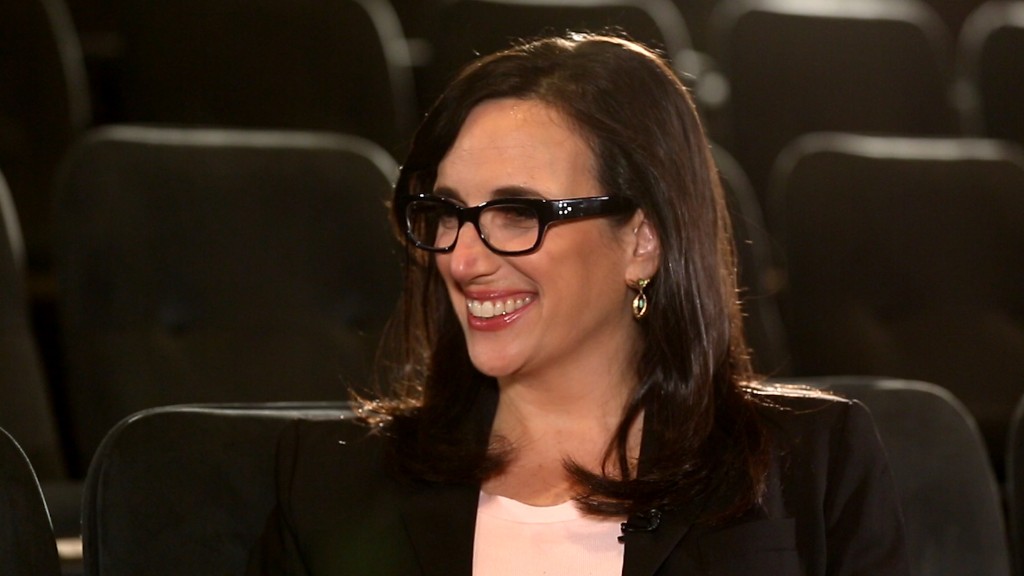
How do I talk to my grown children about how to handle the money they will inherit? How can I ensure the wealth will last for them and beyond?
It's not hard to come by financial advice on how to grow and preserve your wealth. Multi-family offices are a one-stop shop for various financial needs like tax and estate planning, insurance, trusteeship, investment advice and foundation management, all under one roof.
But managing the conversations, expectations and priorities surrounding the transfer of wealth are just as important.
"A financial planner's focus is very much on preparing the assets for the family, but it is also important to prepare the family for the assets," says Amy Castoro, president and CEO, the Williams Group, a consultancy that coaches families through transitions.
Investments and trusts often do not last to the third generation, says Castoro. After speaking with over 2,000 high-net-worth families and business owners following an estate transfer, her firm found that 70% of the time the wealth did not successfully transfer to the wealth-creator's grandchildren.
More than half the time, she says, the breakdown is in trust and communication. A quarter of the time it's due to a lack of preparedness on the younger generation's part, and the rest of the time is because the family's values and mission are not clear. Rarely is the failure due to errors on the part of the family's financial advisers, she says.
Carrie Schwab-Pomerantz, president of the Charles Schwab Foundation, senior vice president at Charles Schwab and daughter of famed investor Charles Schwab, has seen it happen to her friends. "These are wealthy third-generation heirs of turn-of-the-20th-century wealth who were told by their parents that they would never have to work a day in their lives," she said. "Instead they had to downsize their home, they had to go to work. It was not the life they were promised, because the money was gone."
Talking to your heirs about wealth will help mitigate pitfalls and set them up to preserve and grow their inheritance for future generations.
Build trust and start communication
Parents are often concerned wealth will disincentivize adult children from their own pursuits and that siblings will fight over it or start to distrust each other.
"Normally, mom and dad hold the wealth tightly to the vest," says Castoro. "They don't want to tell their kids about the estate plan. They distrust that the kids, even if they are in their 40's, are going to manage the money well. Often they just don't want or don't know how to talk about it."
Castoro suggests holding a family meeting to discuss the structure of the estate with everyone over the age of 16, including spouses, in order to avoid any misunderstandings or suspicion about expectations. "You don't have to give amounts, just the overall strategy you want to have implemented," Castoro said.
In addition to getting everyone on the same page, this is a chance to pass on lessons you've learned selecting advisers or developing long-term investment strategies. It's also important to discuss your priorities for the wealth whether it be paying for education, purchasing real estate or funding family vacations.
"As a facilitator, we use those conversations to teach the family how to reveal the distrust and start communicating," she says. "When there is no trust there is no communication."

Prepare your heirs
Schwab-Pomerantz says ensuring the heirs are prepared, not only with financial know-how but also life savvy, is vital to a successful transfer.
"I would wait till their 30's," says Schwab-Pomerantz. "I would tell them when they are well established and emotionally ready."
But financial responsibility should be taught early.
"It is about starting early with an allowance for work and putting value on the money" she says. "My kids all had summer jobs starting at 16. They need know-how to live on a budget and live below their means, even though they may have the money. And they need to understand proper investing strategies with a long term lens."
Castoro says that wealth-creators need to be sure their heirs are prepared financially to manage wealth and see it is not a bottomless well but an opportunity for growth. That will also teach them to be independent rather than spoiled and pampered.
"Net worth isn't self worth," says Schwab-Pomerantz. "The ultra wealthy can create kids that don't have the confidence to be the best adult they can be."
Determine values and mission
It's important to be clear about values that form your family legacy, says Castoro.
"Invite other family members to contribute what makes them proud to be part of the family," she says. "For example, is giving important? If so, is it for animals, the environment, or medical breakthroughs? This provides an opportunity to create alignment around individual roles and specific actions people can take to contribute to the family wealth."
This is not a one-time statement, but tends to be dynamic and evolving for families.
"Hold regular family meetings to update changes to the estate, family business, access to assets, allow family members to present the charities of their interest, present business ideas."
Also, Schwab-Pomerantz says, it is very important to discuss the degree to which the older generation will help the younger generation while they are still living.
"In our family, older generations helped the next generation," she said. "Everyone had careers and had to work. But they helped pay for our college and grad school and a down payment for a house. And now they are helping to pay for grandchildren's college."
Have an investing question? Ask us here to be included in a future column.

